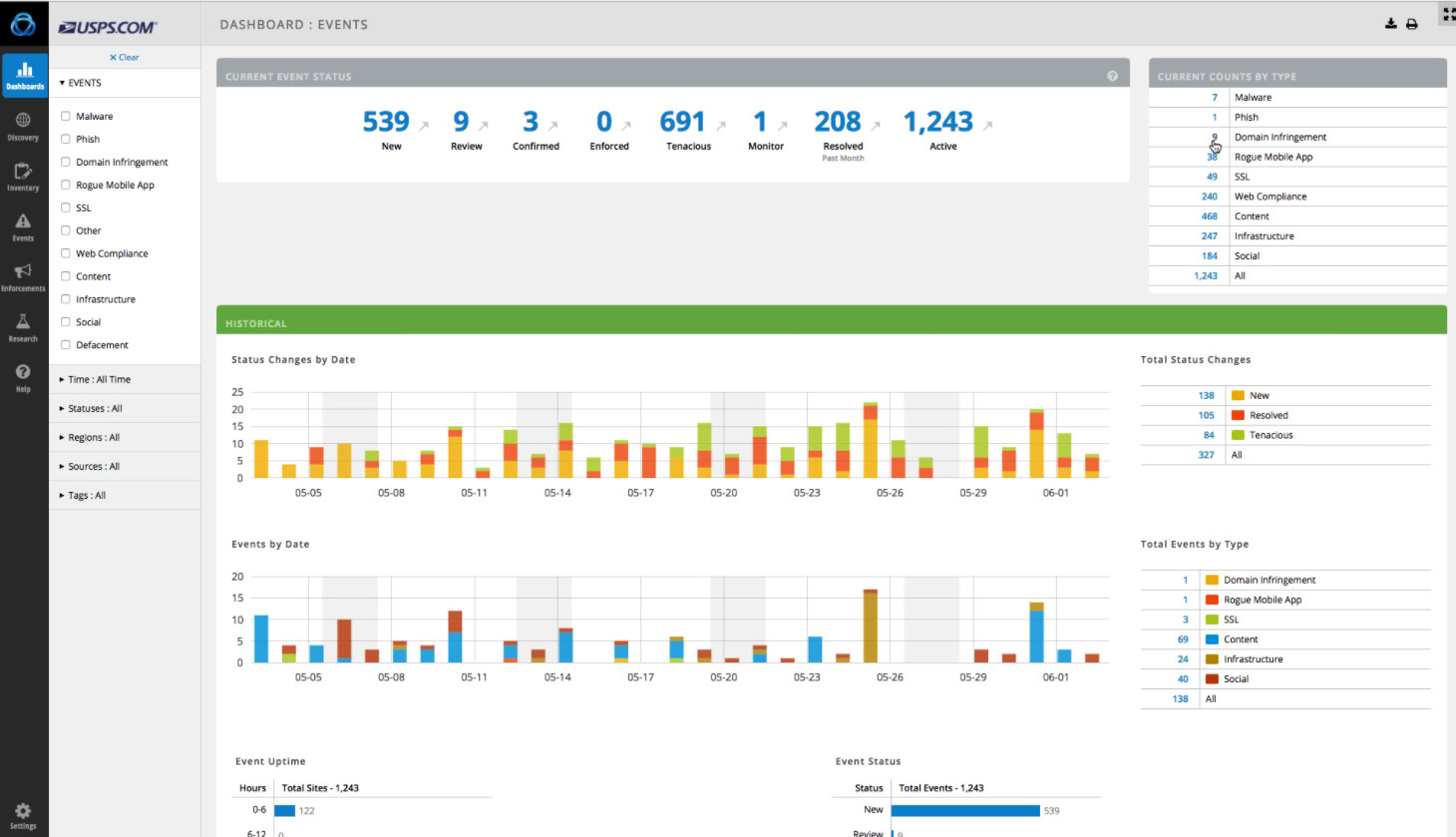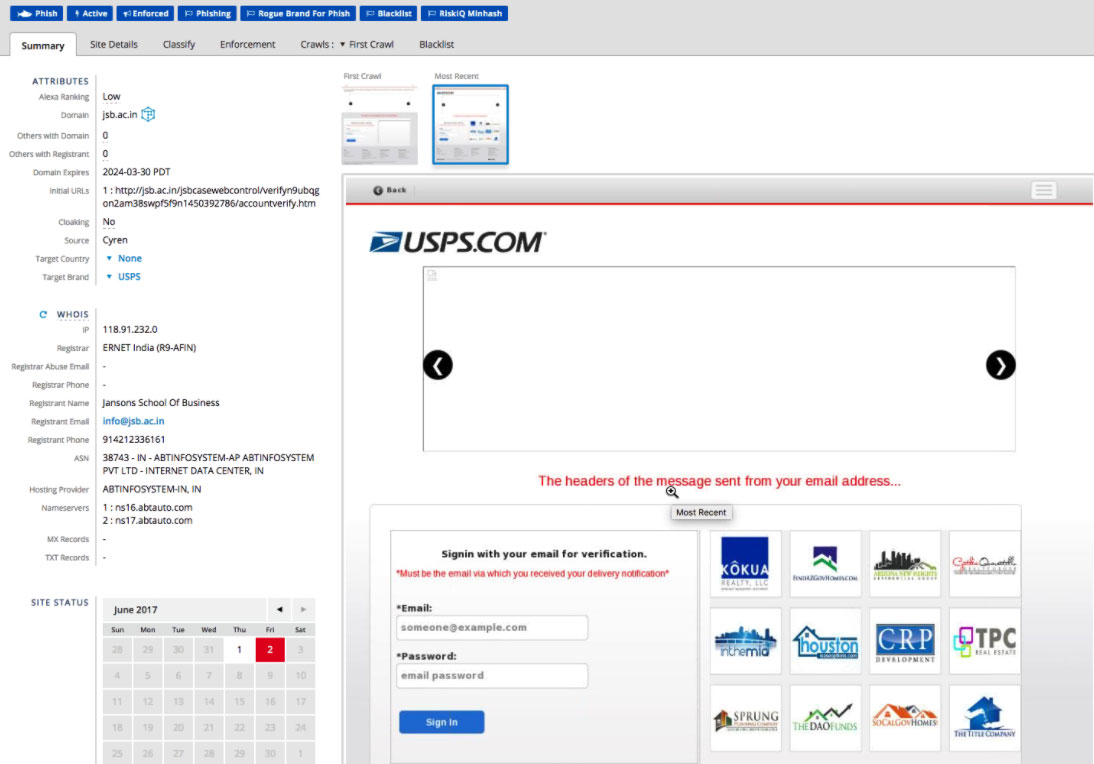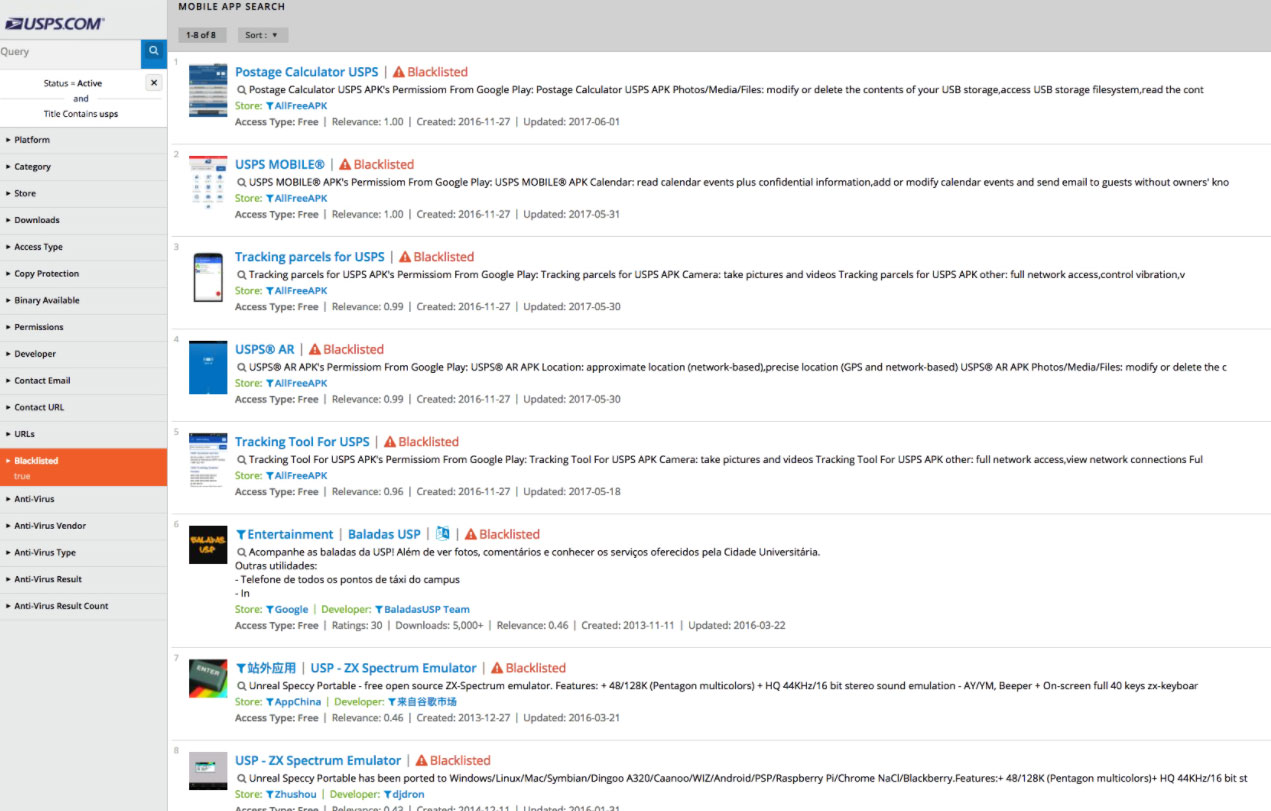Spoofing a Government Website is Easier Than You Think

Nicescene/Shutterstock.com
A new breed of attacker is impersonating government websites and official apps in order to steal credentials from real feds.
John Breeden II is an award-winning journalist and reviewer with over 20 years of experience covering technology and government. He is currently the CEO of the Tech Writers Bureau, a group that creates technological thought leadership content for organizations of all sizes. Twitter: @LabGuys
The federal government is a big target, the fourth most popular overall according to most studies, for attackers trying to target core assets. But a new breed of attacker may be even more insidious, impersonating government websites and official apps in order to steal credentials from real federal workers, or simply to exploit normal people who think they are interacting with real agencies.
This past week, I was invited to examine a product in the emerging field of external asset protection. While most cybersecurity focuses on core assets, the RiskIQ Digital Threat Management Platform instead looks at areas outside of an agency’s direct control to find threats or vulnerabilities. This can be suppliers working with unpatched or vulnerable equipment, or outright criminals trying to impersonate government agencies. The RiskIQ platform is designed to find all of them, wherever they may be hiding on the internet.
» Get the best federal technology news and ideas delivered right to your inbox. Sign up here.
For my demo, we used the Community Edition of RiskIQ, which is free to anyone. It contains most of the general information about spoofed or vulnerable linked sites, just not the detailed threat intelligence of the premium version that must be paid for as a service. For the demo, we looked at the actual vulnerabilities and spoofed sites for a federal agency, and I insisted I got to pick the specific agency at the last second, so RiskIQ didn’t know where we would be looking.
The Postal Service was my choice. I figured there would be lots of scams involving the Internal Revenue Service. I even get those calling my phone. But I didn’t think there would be too much Postal Service imitation. Boy, was I wrong on that.
But more about the tool we were using first. The RiskIQ Digital Threat Management Platform is an internet intelligence data warehouse at its core, coupled with three primary applications: RiskIQ Digital Footprint, RiskIQ PassiveTotal and RiskIQ External Threats.
RiskIQ Digital Footprint is used to discover an organization’s web and associated online assets, while RiskIQ PassiveTotal accelerates threat, adversary and incident investigations. RiskIQ External Threats provides the ability to deal with advanced threats, active exploits and sophisticated attackers. As we weren’t actually fixing problems, most of our time was spent with the first two components.
Right from the start, the problems facing USPS.com and the Postal Service looked kind of grim. In fact, there were 1,243 active systems flagged by RiskIQ. Of those, seven were actively serving malware, one was phishing, nine were infringing on the Postal Service domain—acting like USPS with a similar URL, and 468 had stolen content.

Not everything tagged was necessarily bad. For example, anyone can put a link to the Postal Service on their website to help people look up ZIP code information or schedule passport photos, or because they are big fan of the mail. There is nothing wrong with that, though the sites actively serving up malware or pretending to be the government were certainly were up to no good.
RiskIQ’s ability to search for content was impressive. It located a lengthy subdomain housed at a business school in India where someone was actively building out a fake USPS.com site, complete with logos, links and the ability for users to create an account which they might think is being done at the real Postal Service site. It’s also possible the site is simply a student project, but it’s certainly something that should probably be watched.

Moving to apps, the storm of fake Postal Service programs got even worse. There were hundreds of fake apps that had already been blacklisted for multiple platforms including Android, iOS, Windows and BlackBerry, and even some for older operating systems still being used in some parts of the world like Symbian. RiskIQ could monitor all the new apps being created, and flag the ones that seem to take liberties with the Postal Service's intellectual property.

Once discovered, valid owners of domains and IP can file a complaint with the major browser manufacturers or the appropriate app store as a fairly quick fix to the problem. All of the major browsers are able to blacklist sites proven to be spoofed or deceptive, so if Microsoft Edge and Google Chrome users can’t get to them, it removes a big part of the potential pool of scam victims.
While a private citizen might have a few hoops to jump through to get action taken, I’m confident the government can get those things done without much pushback. The RiskIQ officials I interviewed told me complaints filed through their software often get fast tracked, as most of the research, proof gathering and due diligence is already completed.
The company says it's working with federal agencies now, but are not allowed to say which ones. Regardless, hunting down and squashing spoofed and phishing sites, plus illegal and dangerous apps, should be something that concerns federal agencies.
Putting aside the fact that some of these spoofed sites could be designed to capture actual federal credentials, even if they are just ripping normal people off—they are using the good name of a federal agency to do it. Not to sound too John Wayne about it, but those are fighting words in my book.
Anyone can use the free community version of the RiskIQ platform, so if any agency or organization is worried about people using their names and reputations for nefarious purposes, give it a look and find out. I was certainly shocked at the potential number of threats levied against a nonpolitical, nonsecret, service-oriented agency like the Postal Service. The problems there might be the tip of the threat iceberg across government.






